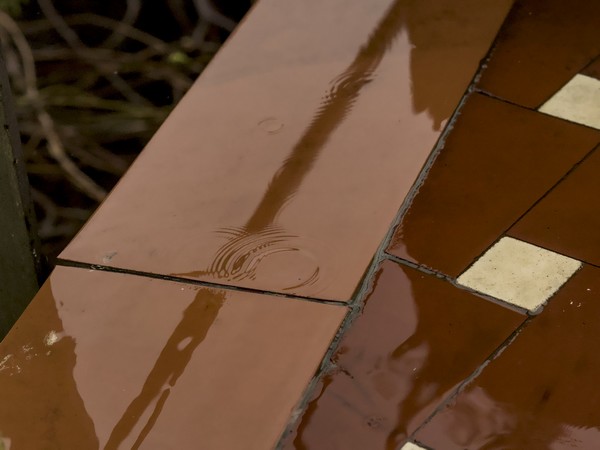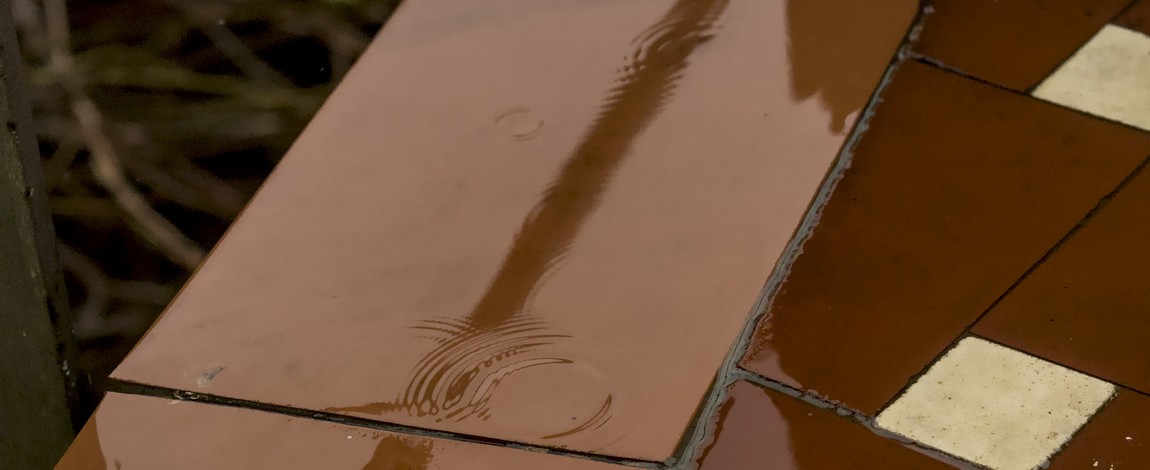
In literature, art, and even everyday life, tears are often associated with rain. How many times have we seen in films how a rain-soaked burial emphasizes the grief for a loss? How many times have rain drops slipping through the window glass compared to tears falling down a cheek? Images that bind rain and tears are present in poetry and, consequently, in Art Song. Sometimes, even in the title, as in the beautiful Tränenregen [Rain of tears] from Die schöne Müllerin.
Last week we listened to Chove [It rains], a song by Manuel Palau with a poem by Xosé Ramon Fernández-Oxea. "Chove no meu corazon doorido," [It rains in my sorrowful heart], it reads. Considering that the poet is from Galicia, we can imagine a link with the rain that we Mediterranean people don't have; rain comforts the poet, softens the sorrows, and drowns the pain. This beautiful image reminded me of another, that of Paul Verlaine: "Il pleure dans mon coeur, com il pleut dans la ville". A neologism is proposed here, which turns the verb pleurer [to weep] into impersonal. The verses play with the homophony of pleure [it's weeping] and pleut [it's raining] to melt both words: to rain and to weep are the same thing. As in Fernández-Oxea’s poem, the rain also comforts; however, while the Galician poet understands why he is sad, "per un profundo desamor" [for a profound unrequited love], the French poet doesn't. He does know, in fact, that there is no reason to be so sad, and that makes him feel even worse.
This poem, Il pleure dans mon coeur, is part of the collection Romances sans paroles (1874), a title that refers us to the Lieder ohne Worte by the Mendelssohn siblings; it is the third poem in the first part, Ariettes oubliées. As you can see, everything takes to music, and the poems in this collection have certainly inspired many, many mélodies. Our poem, with its rhythm, rhymes or alliterations, seems to bring music inside, and has turned into a song more than one hundred times.
We will listen to Gabriel Fauré's version, who titled it Spleen, a term very common at the time. In French, spleen refers to the state of melancholy without an apparent cause of which the poem speaks, a vague sadness, often accompanied by tedium and, in the most acute cases, by the tiredness of living. The condition's name comes from the medical theory of humours, which holds that the melancholy disposition is caused by an excess of black bile, the humour that the spleen would produce.
Fauré composed Spleen in 1888, it's his op. 51/3. The song perfectly conveys, in my opinion, this melancholic state, lacking in vitality. It even appears that the rain we hear in the accompaniment has more life than the vocal line. I have chosen to share with you a version that I like very much, that of Simon Keenlyside and Malcolm Martineau. Please don't be influenced by this strange melancholy!
Il pleure dans mon cœur
Comme il pleut sur la ville ;
Quelle est cette langueur
Qui pénètre mon cœur ?
Ô bruit doux de la pluie,
Par terre et sur les toits !
Pour un cœur qui s'ennuie,
Ô le chant de la pluie !
Il pleure sans raison
Dans ce cœur qui s'écœure.
Quoi ! nulle trahison ? ...
Ce deuil est sans raison.
C'est bien la pire peine,
De ne savoir pourquoi...
Sans amour et sans haine
Mon cœur a tant de peine !
There is weeping in my heart
like the rain falling on the town.
What is this languor
that pervades my heart?
Oh the patter of the rain
on the ground and the roofs!
For a heart growing weary
oh the song of the rain!
There is weeping without cause
in this disheartened heart.
What! No betrayal?
There's no reason for this grief.
Truly the worst pain
is not knowing why,
without love or hatred,
my heart feels so much pain!
(translation by Peter Low)
















